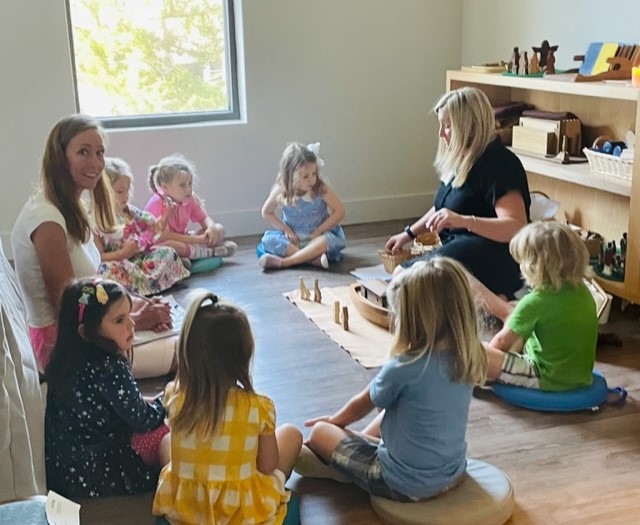
Caring for God’s Children in Bolivia
December 28, 2021
Children’s Sunday School
August 20, 2023Deepening faith through Christian care
By Maggie FitzRoy
I was devastated.
Nine years ago, I felt forced to resign from a job I loved, plunging me into an identity crisis, deep grief, and paralyzing fear. I didn’t know what I had done to deserve it, what I was going to do next, or how I was going to pay my bills.
Fortunately, as a longtime parishioner of Christ Episcopal Church, I had strong faith and believed in the power of prayer. So I went to see Father Bob Morris, who prayed with me, calmed me down, gave me valuable insights, and realized that I needed more than that.
He asked if I would be open to having a Stephen Minister—a trained fellow parishioner who I could meet with once a month—and I said yes. I’m grateful I did. Over the course of a year, as my Stephen Minister and I met once a week, I gradually felt myself heal in her compassionate listening presence, caring, and prayer.
Stephen Ministry offers high-quality, one-to-one Christ-centered care to people experiencing life difficulties. Founded in 1975 by a pastor and clinical psychologist in Missouri, it now includes 13,000 Christian congregations from around the world, representing more than 180 denominations.
The ministry provides emotional and spiritual care for people going through a wide range of difficulties, including grief, a medical crisis, family-caregiver stress, job loss, financial difficulties, divorce, family difficulties, and major life transitions.
When Father Bob brought Stephen Ministry to Christ Church fourteen years ago, he asked parishioner Madeleine Tavares to be one of his volunteer leaders, to help recruit and train Stephen Ministers. Tavares is still a Stephen Minister, and says the 50-hour training course deepened her faith while teaching her how to become a better listener, as well as how to put her compassion into action in helpful ways.
“Stephen Ministers are listeners and comforters,” Tavares says. They don’t attempt to fix problems, but through their training, learn how to ask questions that may help care receivers think differently. The meeting times, always private and confidential, are centered around what the care receiver needs, which Tavares says is not aways prayer. “This is a very practical ministry and some people are angry at God,” she says. Although, “God is always with me the times I’m doing this. Things come out of my mouth that I didn’t think of myself.”
The Stephen Ministry training is such a powerful tool for teaching people how to practice compassion behaviorally that Tavares wishes everyone in the church could take it. For example, when greeting someone who you know is suffering a major health crisis, it is better to say, “I’m so happy to see you today,” than “How are you doing?” Tavares says. People mean well, and want to be compassionate, but don’t always know what to say.
Female Stephen Ministers are always paired with female care receivers and male Stephen Ministers are paired with male care receivers. The relationship is completely confidential, and they meet once a week at a place convenient for both. The average time together is one year, but can be longer or shorter, depending on the needs of the care receiver. For more information about becoming a Stephen Minster, or a care receiver, contact Pastoral Care Director Liz McCarthy.
“Being a Stephen Minister is extremely rewarding,” Tavares says. “When you can see what you have done has helped, when you see change in a positive sense, it is very, very rewarding.”
As a care receiver, I am extremely grateful for the time and comfort my Stephen Minister gave me. My life is better for it today.


